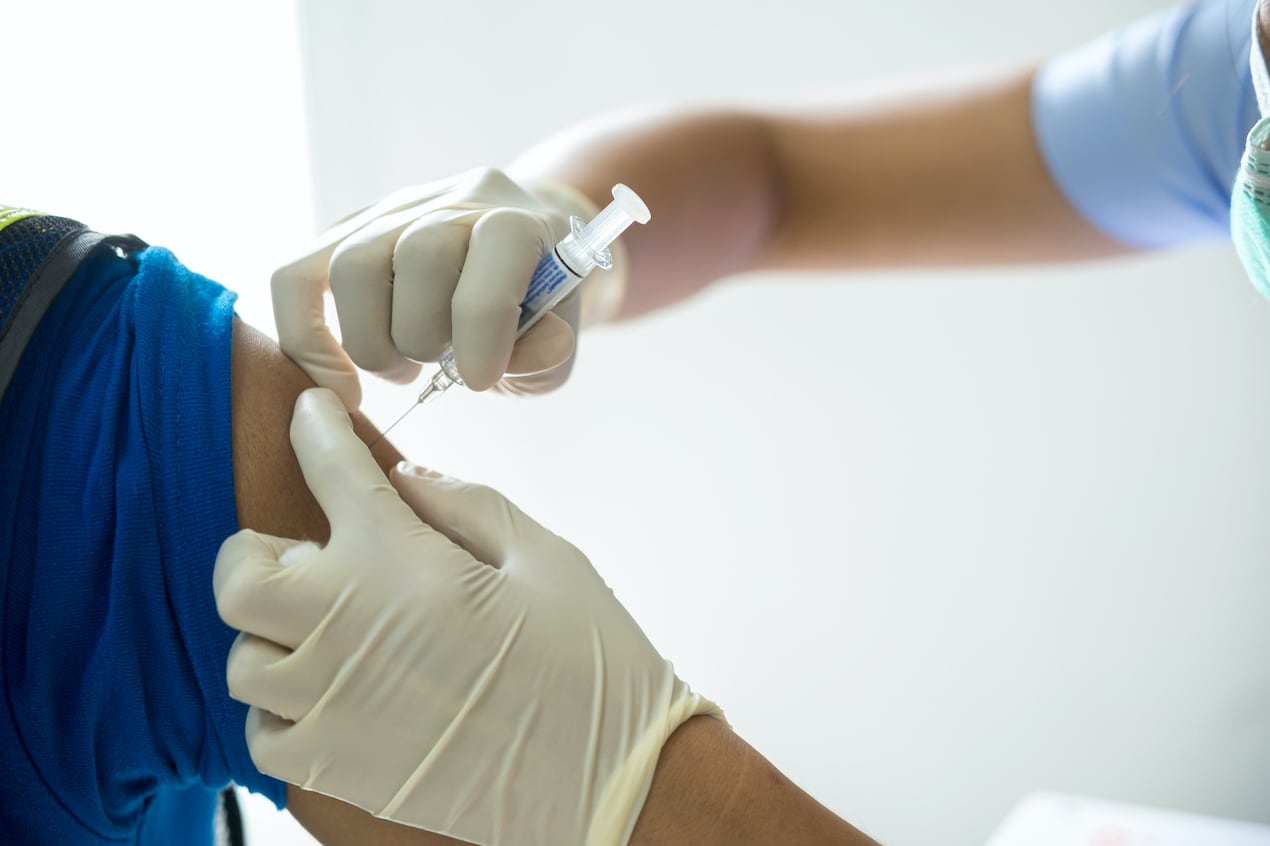Teachers, child care workers, and other educators can begin receiving the COVID-19 vaccine starting Jan. 11, Gov. Gretchen Whitmer announced Wednesday.
The educators will be part of a new wave of Michigan residents eligible to get the vaccine. Others included in the announcement include residents who are 65 or older, police officers, first responders, frontline state and federal workers, and jail and prison staff.
Dr. Joneigh Khaldun, the state’s chief medical officer, said frontline workers will learn about the vaccination process through their employers.
“The more people we can get the safe and effective vaccine, the faster we can return to a sense of normalcy,” Whitmer said in a statement.
The state has already been vaccinating health care workers.
Tina Kerr, executive director of the Michigan Association of Superintendents & Administrators, said in a statement Wednesday that the organization is pleased Michigan educators are next in line.
“The pandemic has made it very clear just how essential educators are and protecting them against this virus must be among our top priorities as we begin the slow march toward returning to face-to-face learning for all Michigan students,” Kerr said.
“Vaccinations, wearing masks, practicing good hygiene, and maintaining social distance are the most important tools in our toolbox to fight COVID-19,” Kerr said. “Vaccinations for educators will ensure that we can continue to provide in-person learning environments that protect the health and safety of students, staff, and our communities at-large.”
The state last month rolled out an education campaign to help Michigan residents understand the importance of the vaccine.
Detroit Superintendent Nikolai Vitti said earlier this week in a statement that it will be crucial that the state aggressively works to create awareness in all communities.
“If this does not happen, then when the vaccine is available, the percentage of administrators, teachers, staff, and parents (students) who are willing to take it will be low,” Vitti said.
Results of a recent University of Michigan survey of Detroit residents found more than 60% of those who participated said they were unlikely to get the vaccine.
Vitti said that he believes government leaders have not acknowledged the differences of opinion about the vaccine between white and non-white communities.
“This will obviously have an impact on urban school districts and their ability to return fully to in person learning at large numbers. I am fearful that largely white and middle/upper class schools and districts will return fully to in-person learning if the vaccine is rolled out effectively from an access point of view and federal and state policies (regarding funding for online learning) will shift in favor of in-person learning. This will have a disproportionately negative impact on districts such as ours,” Vitti said.
Michigan has had more than 500,000 positive COVID-19 cases and more than 12,000 deaths.





